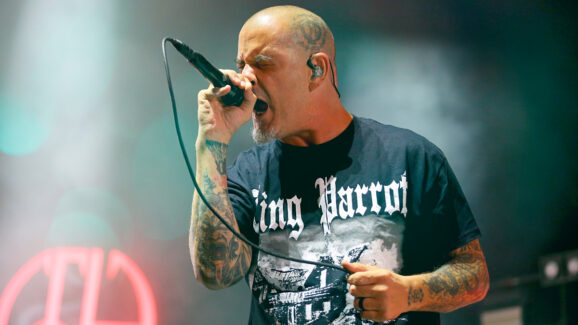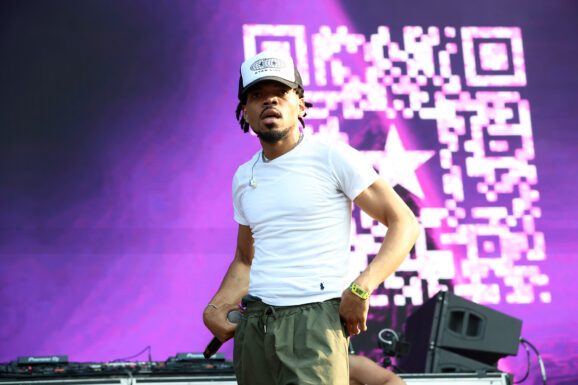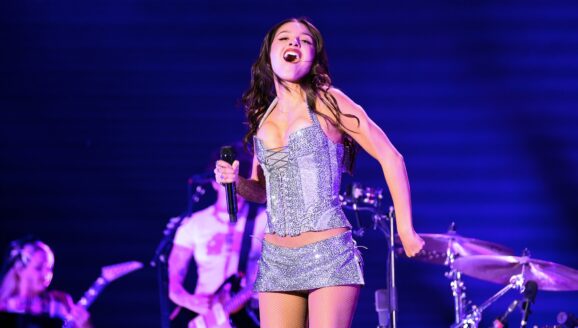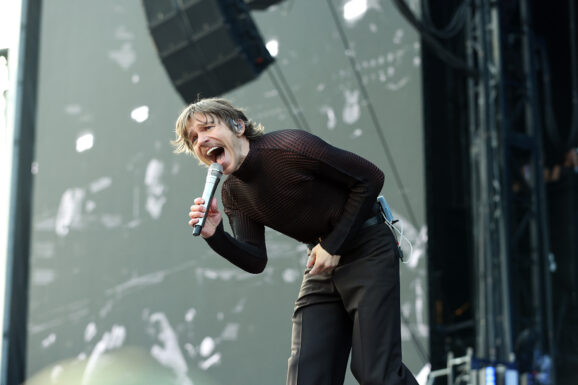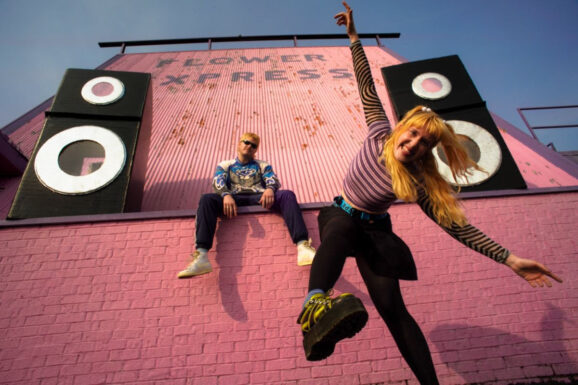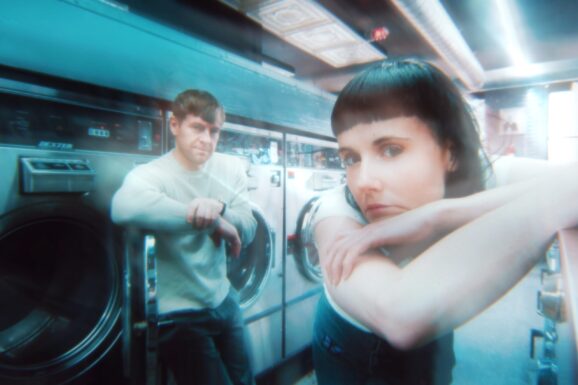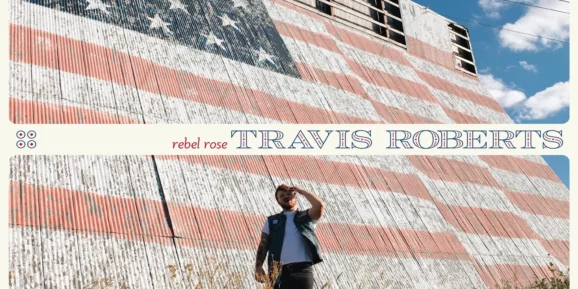On June 20th, longtime New York-based singer/songwriter and guitarist Willie Nile will be releasing his 21st long-playing album, The Great Yellow Light. Steeped in inquisitive songwriting as his albums always are, Nile’s The Great Yellow Light also captures a certain flame of positivity that seems so embattled these days. Far from making positivity sound easy, Nile confronts the darker corners of our current world and uses incisive language and the incredibly varied aspects of Rock ‘n Roll history to keep that darkness at bay. He’s also been incredibly busy lately, taking part in a documentary about him, contributing to a book about Buddy Holly, collaborating, and playing live on both coasts, continuing to demonstrate the energy that has given his musical life such longevity.
The album’s title is a reference to Vincent Van Gogh’s letters to his brother, Theo, and the quality of light that led him to paint in the South of France. For Willie Nile, the image and idea came to represent moments of wonder or elevated experience in life, the ones that keep us going later, through darker times. I spoke with Willie Nile about his busy life lately, the fact that he’s becoming more recognized as a stalwart of Rock music and live performance across the decades, reflecting the times that he’s living in, and finding the positivity through music to help lift audiences up in turn.
You’re a very busy man, Willie. I don’t know how you keep up with all the different collaborations, projects, and releases. Just looking at your social media posts makes me feel amazed.
I’ve never been so busy in my life! Since January, I can’t even begin to tell you how it’s been. Just yesterday, I finished a new video. There’s a Buddy Holly coffee table book that’s coming out that they are calling me about, trying to find a space for an afterparty with a book signing for a bunch of hall-of-famers. You name it. I was in Philadelphia, I was in California two weeks ago. Then I flew to Buffalo and saw The Wallflowers, and Jacob’s a good friend. There’s little down time. I shouldn’t be complaining. I’m back in New York City, now.
You’re giving me a little bit of hope regarding a trend I think I’m seeing, where people are starting to recognize artists who have been working for a long time and have had an impact on the history of popular music. You’re in demand and I think public consciousness is being raised a little lately.
Thank you. My first record came out in 1980, and I had one in ‘81. Then, in ’82, I walked away from the music business because it was killing my buzz for music. A lot of people tried for me, and I got to tour with The Who across the US. I had never, ever imagined that as a kid. When I moved to Buffalo to New York City, I was just trying to make a living in music. So many of things that have happened have been beyond anything I’d ever dreamt of. But I walked away in ’82 because of business hassles with a former lawyer, a former manager, and it was no fun. It wasn’t the smartest thing to do in the world, but they were killing the buzz.
I didn’t get in this to become famous. It didn’t do a lot for Michael Jackson, or Whitney Houston. It just wasn’t my goal. I love music, I love makin’ it, I get to express myself. So my route has been circuitous, to say the least, up and down. When I moved back to Buffalo, I never stopped writing, because that’s just what I do. I finally signed with Columbia in ‘88, and a record came out in ‘89, wrong timing. The thing that I avoided, gratefully, was that when I first moved to the Village in ‘77, I saw a lot of musicians with chips on their shoulder. I thought, “Really? I don’t want to be in that party.”
You still play some of your early music at shows, and it still sounds very Rock ‘n Roll and fresh. Do they seem the same to you now?
I love doing it. I should be knocking on wood, but I still do it and get out there. If I were to play any of the song from my first album, I would play them the same as when I did back then. I played “Sing Me a Song” the other day. I played some solo dates on the West Coast about a month ago, and I played that song, which was the one that got me signed to Arista Records, with the same fervor and passion. Either I’m too dumb to know better, or I’m just lucky! I love what I do, and I’m grateful to be able to do it.
All of these things are inspirational in your career, like the way you’ve continued to perform and even to support other musicians. But I also think of you as a songwriter who hasn’t given up and continues to address the world around you in a very determined way. You react. I find that true on your new album, too. It’s so hard to find positivity now, but you do.
Absolutely. It is so hard to find positivity, for all of us. But I tell audiences, “I refuse to give in, I refuse to give up, to this darkness.” Life is tough anyway. If a handful of us in a room at a concert were stinking rich, and healthy, life would still be hard. People die. There are horrible things that happen all the time. It’s tough out there, and it’s getting worse. I always go out and sign CDs at my shows, and talk to people. People say to me, “I lost my wife, I lost my parent, and my buddy said to me, ‘You ought to go out and see this guy.’ And now I feel better!” These are feel-good shows. I can sing a song like “Holy War”, or “Blood on Your Hands”, but at the end of the day, I want people to leave feeling up-beat. Music can pick us up. I’m a fan as much as anybody.
My songs are very simple, but I write about things I see. I love the wide palette. I love this huge, blank canvas. You can write about love, loss, partying on a Saturday night, pain, ecstasy. You can write about all of the above, and when I start to put a record together, and I’ve got a collection that I feel is worth going into the studio with, I don’t want to waste my time or money on my little label. I do this fan-funding, and it’s been great. The fans show up every time. But I do it because I mean it. On this album, there’s the lightheartedness of “Trying To Make a Living in the USA” to a [heavier] song like “Wake Up America” and “We Are, We Are”, which is a song meant to pick us up.
I’ve got friends who refuse to watch the news, but I pay attention. I want to know what’s going on, because I write about it. Of course, I write about what’s going on, but I try to do it in such a way that it’s uplifting.
A really good example of that is a song I really like on the album called “Wild Wild World.” You’ve got all that content from the world around us, though the music itself is so infectious and upbeat, but there’s also a turn in the song where in the second half, it’s more about that fuel, asking, “How do I keep going?”
That’s exactly why it opens the album, and exactly why I wrote it. It’s got this surf, kind of rockabilly, party song sound, and it’s tongue-in-cheek, “laughter in the Kremlin, chuckles in Versailles, big guffaws in Washington, I think I know why.” It’s trying to have some fun with it as best as one can. It’s a lot of fun to play live, you know? I grew up in that great era of music, during the 60s. When I was a little kid, I saw Elvis on TV, but in the 60s, there was this great wide-range of music from Motown, to British Invasion, to Dylan, to Walter Brennan. It was a great era, and great music. The 70s were too. Music really meant something, and the world changed because of it.
Music still means something to me. If you’re a writer, whether you write poetry, short stories, or the great American novel, you can do anything, and that’s the fun of it. I tell young writers coming up, “If it means something to you, it might mean something to somebody else. That’s reason enough.” Especially, during these hard times, any pick me up, any simple note can help. These days, pick a Country! Whether it’s the Ukraine, the Middle East, Africa, there’s a lot of good work that needs to be done, and you can get down in the dumps about it, for sure. My way of fighting back is with a guitar, a piano, a voice, and a pen. That’s my way of pushing back against the weight, the darkness, the negativity.
It always has to start with the individual, doesn’t it?
That’s true.
I love the way that you get out in front of people and present this to create that atmosphere, too. I don’t blame anyone who just records, and doesn’t perform…
Nor do I.
But the fact that you actually put your person out there behind the music for other people is impactful.
It’s also how I pay my bills. I have to work. My publishing might someday be worth a fortune, but right now it’s not. On the 17th of May, I played a show with The Hooters in Philadelphia, who are a good friend of mine. They played on this new record and did a great job. They asked me to open up for them, and have a new song out called “Pendulum”, and asked me to help out, so I wrote it with them, too. It was at the Metropolitan Opera House in Philly. It’s a beautiful room. It was packed. I was able to talk, tell stories, share the songs, and we got a standing ovation, for crying out loud! They listened.
That is wonderful to hear.
If you approach people in a human way, shoulder-to-shoulder, you can’t always get through, but I’ve got a bag full of tricks with my songs. We had a great time. A standing ovation, what?? It was encouraging, very much so, since most people there didn’t know me from Adam.
I wanted to ask about your cover art on this album, and what it means to you. Is there something between this fire image and the idea of “the yellow light”?
The photograph on the cover is from 2013. My wife, Cristina Arrigoni, is a great photographer and she went to this little circus in the Italian Alps. She took her son, and it was a one tent circus. I was not there, and when she showed me the photo, I said, “That’s an album cover.” When I had put this album together, and was going to call it, The Great Yellow Light, I thought, “Oh, man, I know what the cover could be.” I love this image. There’s a little boy on the left of the image, peeking in, and it’s a total Charlie Chaplin moment.
“The great yellow light” is a reference to Van Gogh and his letters to his brother. When he came down to Arles in the South of France, from where he lived in The Netherlands, he wrote to his brother about this “great yellow light”, something he’d been looking for all his life, and how it inspired him. That inspired the song by that title, which is not about Van Gogh, but for me, “the great yellow light” is those moments of joy that are rare and we are lucky enough to come upon in our journeys.
In the image, there’s the guy, with his arms outstretched, and the flame that’s on his tongue. For me, it represents everything. You don’t need a picture of me. It represents those moments of joy and wonder, however few and far they may be. May many people have as many of those moments as possible. The album came from a feel-good place in my heart, and I meant every word of it.


